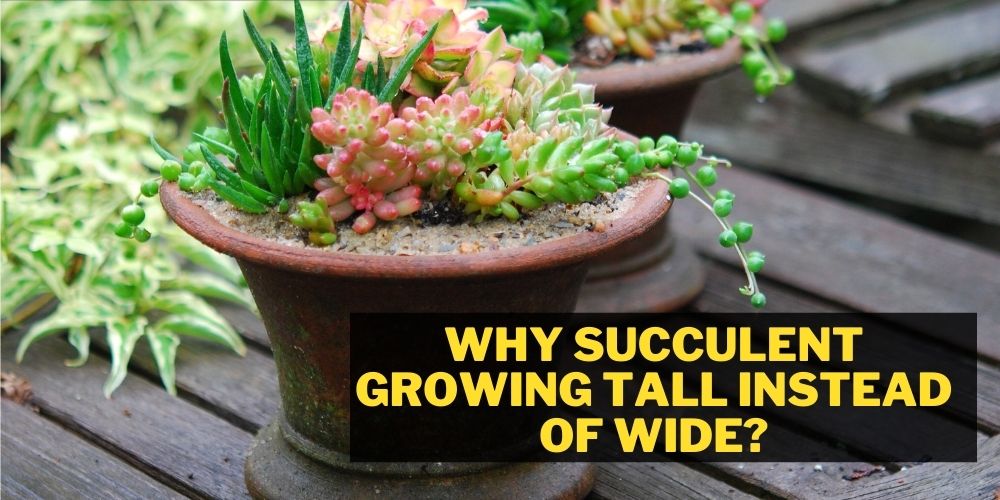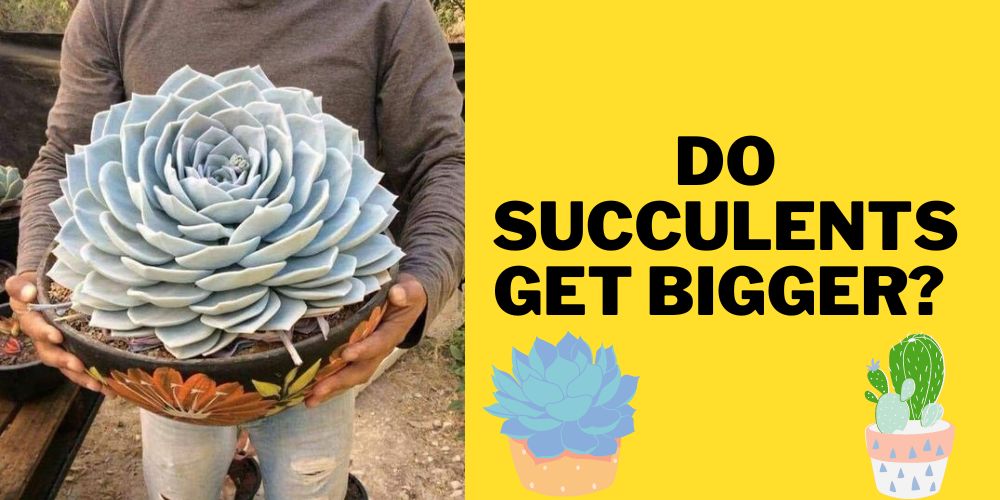Did you know that adding coffee grounds directly to some plants’ soil can increase their overall growth rate?
Coffee grounds add nitrogen, which is an important ingredient that assists in developing the chlorophyll molecule. Chlorophyll gives plants their green color as well as generates food for them through a process called photosynthesis.
That’s all well and good, but are coffee grounds good for bamboo plants as well?
Unfortunately, bamboo is not one of those plants as it can’t handle the direct hit of caffeine. So coffee grounds aren’t good for bamboo plants.
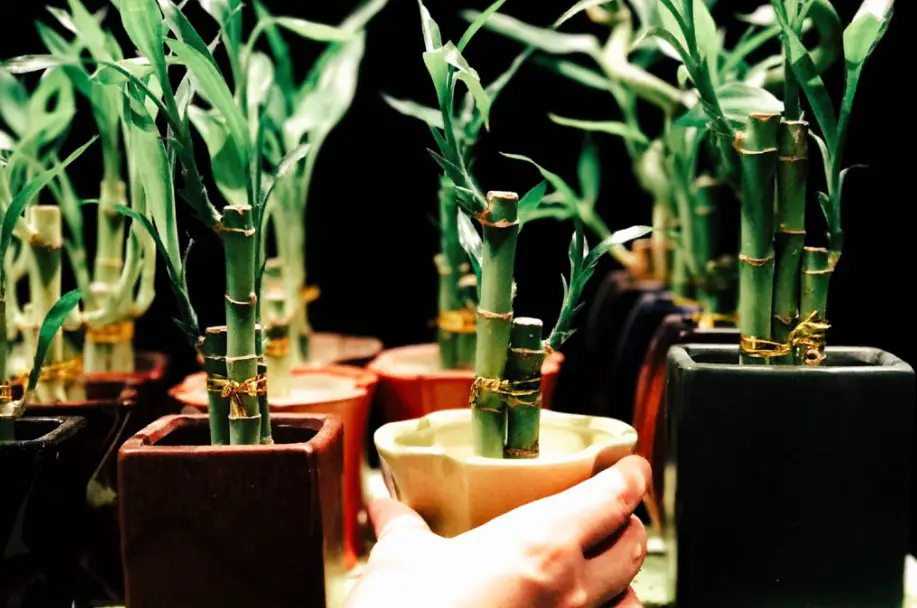
If anything, coffee grounds will stunt its growth. There is a manual solution that can turn the situation around, though. Let’s look closely at how you can make coffee grounds to help bamboo plants grow.
Table of Contents
Are Coffee Grounds Good for Bamboo Plants?
In short, no, but they can be altered to be effective for a bamboo plant. Using coffee grounds directly on your potted or planted bamboo plants will stunt their growth.
They contain a toxic compound that reduces the plant’s ability to absorb nutrients. Fewer nutrients mean less food; less food equals less growth, plain and simple.
A great way to dilute the potency of the caffeine is to add it into a compost mix first. Simply add a 3-part mix (1 part coffee grounds, 1 part leaves & 1 part fresh grass clippings) to your compost.
Give it a bit of a mix to aerate, then let it decompose for 10-14 days and boom, like magic, you have transformed something unusable into a super fertilizer.
Best Soil Conditions and pH Level for Bamboo Plants
Bamboo plants grow best in loamy soil, which offers a balanced combination of sand, silt and clay. Blends with too much sand and silt are much too porous.
This means water will drain extremely fast and won’t allow the bamboo to absorb its nutrients effectively.
Additionally, the roots will shrivel up and die. As a result, this wastes time, money and effort.
On the other hand, blends with too much clay hold excess water, causing root rot and creating complications with compaction. When the clay becomes overly compact, the roots will have to try and find their way through an almost concrete-like composite.
Ultimately, it will suffer a slow and painful death as it tries to locate a food source with no luck.
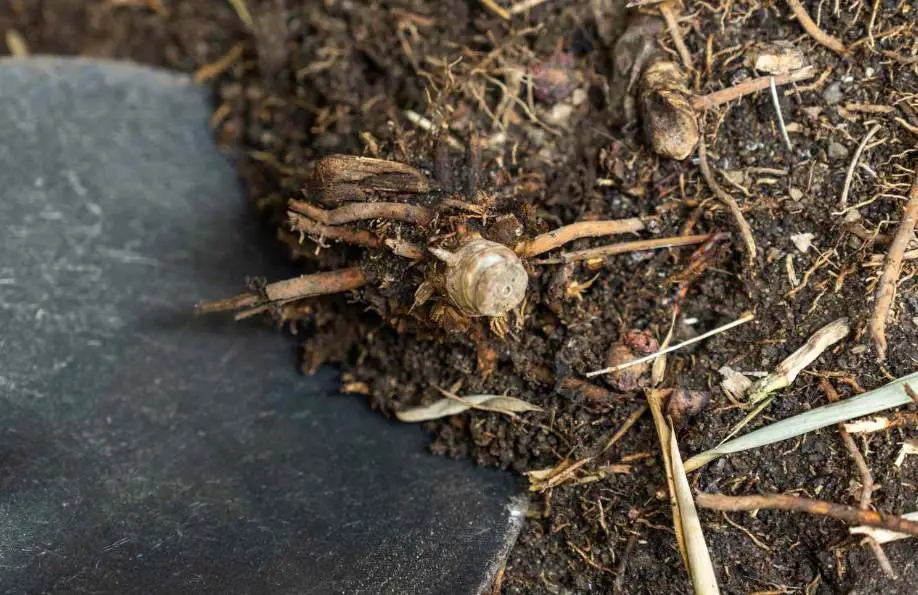
Loam has the perfect balance of all 3 composites. It allows optimal drainage with enough support around the plant to encourage the production of a strong root system.
Additionally, the pockets of air that loamy soil contributes grant the roots and rhizomes the ability to stay oxygenated. Another key factor is its superior capabilities of water retention that can help reduce drought stress.
Soil type is not the only factor that will ensure a bamboo plant can thrive. The pH of the soil is equally as important. Bamboo thrives best in soil with a pH level of between 5-6.5, which is close to neutral but slightly acidic.
If the soil becomes too acidic, add some lime to increase the pH. The amount will vary depending on how much bamboo you are growing.
Benefits of Using Coffee Grounds for Bamboo Plants
If coffee grounds are used correctly, they can benefit a bamboo plant. As we know, you can’t just pour coffee grounds directly onto the soil.
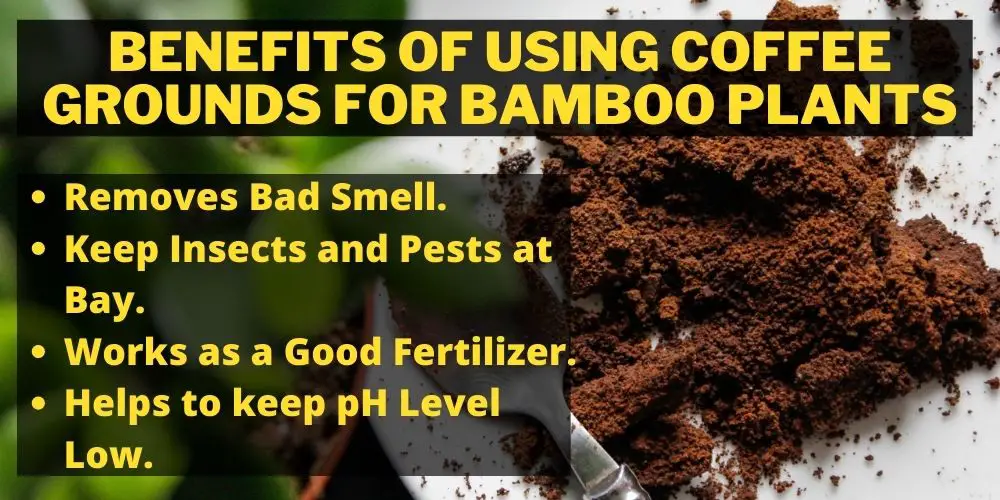
The grounds must first be composted for the toxicity to dilute. Once diluted, they will be safe to use on your bamboo plant. Some of the benefits that are adding coffee grounds to your bamboo plants include:
Removes Bad Smell
Surprisingly, a chemical reaction occurs when the nitrogen in coffee grounds combines with the naturally occurring carbon found in rock and soils. As a result, most of the rotten egg-smelling sulfur gas is eliminated from the air.
So, in simpler terms, coffee grounds help to absorb and eliminate bad smells from your bamboo plant. To test this theory, try placing a bowl of coffee grounds inside your refrigerator or freezer to help neutralize bad smells from off or fragrant foods.
Keep Insects and Pests at Bay
Did you know that most insects and pests hate the stench of coffee grounds? You can use the grounds as a barrier to protect your bamboo plants. Simply set a few bowls around your plants with freshly ground coffee, and the little nasties won’t come close.
Alternatively, you can scatter the grounds around your garden beds to deter them. It is said that burning the grounds is even more effective as the aroma is much more potent.
Works as a Good Fertilizer
Depending on the coffee grounds, some contain small/medium amounts of nitrogen, phosphorus and/or potassium. As a result, coffee grounds can act as a good quality slow-release fertilizer. Not only that, as they are a byproduct of coffee, they can save some money on long-term purchasing.
Helps to keep pH Level Low
Some plants, such as bamboo, require a lower pH level to thrive. As coffee grounds are highly acidic, they can help lower the soil’s pH level if required.
How To Use Coffee Grounds To Fertilize Bamboo?
The simplest way to use coffee grounds as a fertilizer for your bamboo plants is to add them to your compost. You can do this by first making a 3-part mix (1 part coffee grounds, 1 part fresh leaves & 1 part fresh grass clippings). Mix the 3 ingredients by churning with a shovel or pitchfork.
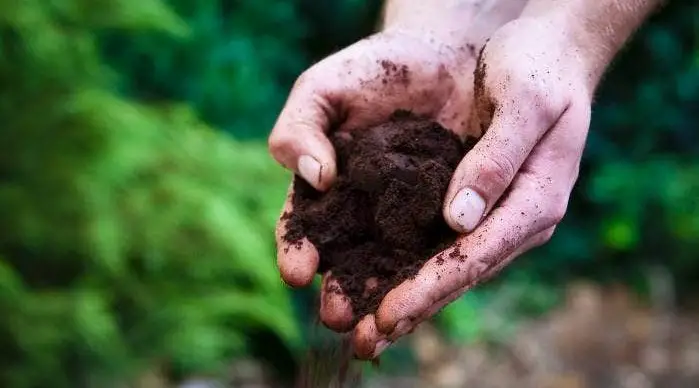
This will aerate them. Let the blend decompose for 10-14 days. Once the process is complete, add the fertilizer to your bamboo plants. Before planting the bamboo, mix the newly composted coffee grounds with loamy soil. This will give them essential additives such as nitrogen, phosphorus and potassium.
Frequently Asked Questions (FAQs)
1. Is Caffeine Bad For Bamboo Plants?
Caffeine is bad for bamboo plants if applied directly onto the soil. It has a toxic effect on the soil and can cause major issues to the plant. On the other hand, if the coffee grounds that contain caffeine are composted beforehand, the caffeine can be diluted and then become safe to use.
2. Can You Use Coffee Grounds For Bamboo Pests?
Yes, you can; simply scatter some coffee grounds outside the bamboo plants. This will form a barrier which most pests hate the stench of and won’t come near. Alternatively, leave a few bowls sitting around your plants. The latter method is cleaner. To take it one step further, you can burn the coffee grounds for an amplified effect.
3. What kind of plants are coffee grounds good for?
Coffee grounds are slightly acidic and are more beneficial to acid-loving plants such as citrus fruits, cranberries, blueberries, radishes, carrots, lily of the valley, camellias, gardenias, azaleas, hydrangeas, and rhododendrons, to name a few.
Conclusion:
I can say that, the coffee grounds are not that good for bamboo plants. But they can become an easily accessible byproduct of your favorite beverage, while offering some amazing benefits for your bamboo plant as long as they are used correctly.
They can add some extra minerals such as nitrogen. They can also neutralize bad odors, deter pests and help lower the pH level of your soil. Your bamboo will appreciate that extra morning hit! We hope you enjoyed this article.

